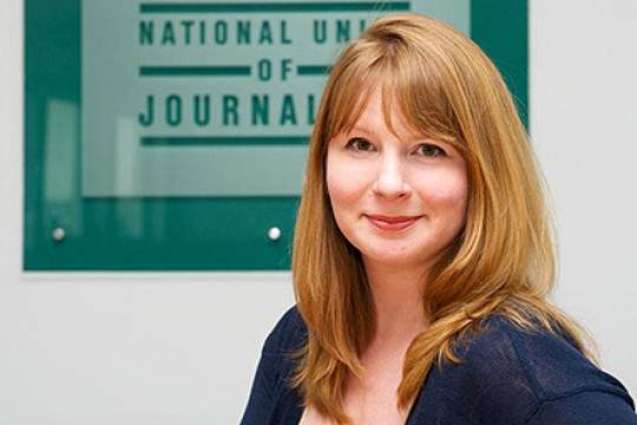Michelle Stanistreet, the general secretary of the UK National Union of Journalists (NUJ), told Sputnik on Tuesday that a report claiming that the government is running an "Orwellian" unit that advises other departments on how to handle Freedom of Information requests and block journalists is part of a "broader context" aimed at avoiding public scrutiny
LONDON/MOSCOW (Pakistan Point News / Sputnik - 24th November, 2020) Michelle Stanistreet, the general secretary of the UK National Union of Journalists (NUJ), told Sputnik on Tuesday that a report claiming that the government is running an "Orwellian" unit that advises other departments on how to handle Freedom of Information requests and block journalists is part of a "broader context" aimed at avoiding public scrutiny.
"We have seen a trend in Westminster where there has been a distinct retreat from public accountability. Whether it's restricting attendance at press lobby briefings or the ongoing undercover policing inquiry, the Cabinet Office clearing house sits within a broader context in which the authorities are clamping down on media access and closing off the public's right to access information," the NUJ leader told Sputnik.
According to openDemocracy, a UK-based political website funded by US billionaire George Soros, Freedom of Information requests that are deemed to be sensitive are referred to a unit called the "clearing house" in the Cabinet Office, which is headed by Minister Michael Gove.
The report claimed that journalists from openDemocracy, The Guardian, The Times, the BBC and many more, as well as researchers from Privacy International, Big Brother Watch and elsewhere, have been included on blacklists.
Professor Tim Crook, the president of the UK-based Chartered Institute of Journalists, told Sputnik that his organization has five freedom of information appeals currently filed, and accused the government of attempting to prevent journalists, researchers, and non-governmental organizations from accessing information.
"I think the openDemocracy report and our own experience of now running five Freedom of Information appeal cases in the Tribunal system is clear evidence that government would like to get away with cover up and stonewalling the search for the truth if it can get away with it," Prof. Crook said.
In a landmark case in 2016, the Grand Chamber of the Strasbourg-based European Court of Human Rights ruled that the Hungarian government violated Article 10 of the European Convention of Human Rights, which governs freedom of expression and information, by denying an NGO access to state information.
The head of the Chartered Institute of Journalists stated that the UK government was regularly committing the same violation by refusing freedom of information requests.
"Multiple breaches of Article 10 are happening day by day. It's insulting and disrespectful to the Strasbourg Court. And worst of all it is a denial of justice to UK citizens seeking information in the public interest," Prof. Crook remarked.
Commenting on the openDemocracy report, independent journalist John McEvoy, who has published in The Canary, Declassified UK, Tribune Magazine and other media outlets, said it is "a worrying affair."
"openDemocracy's revelations about the current state of the Freedom of Information Act are indeed 'Orwellian.' In any situation, governments compiling lists of journalists is a worrying affair," he told Sputnik in an online interview.
McEvoy also claimed that since the beginning of the COVID-19 pandemic, he and a number of other journalists and historians have had problems accessing publicly valuable information via the Freedom of Information Act, which was passed in 2000.
"If the government uses blacklists and stonewalls journalists, it seems likely it may also be using this pandemic to crack down on transparency," he added.
According to the independent journalist, the report also highlights the lack of democratic accountability surrounding freedom of information concerns in the UK, which he said is the very issue the act was supposedly intended to improve.
In a statement obtained by Sputnik, a representative of the UK's Information Commissioner's Office, the independent body established to uphold information rights, said that ensuring transparency in Freedom of Information requests was of integral importance.
"The transparency brought about by freedom of information is an integral part of our democracy and our vision to increase the public's confidence in those responsible for making public information available remains," an ICO representative said.
The United Kingdom was ranked 35th out of 180 countries in the 2020 World Press Freedom Index, which is compiled by Reporters Without Borders, a drop of two places from the preceding year.
The organization cited the death of a journalist in Northern Ireland and the "disproportionate" 50-week prison sentence handed to WikiLeaks founder Julian Assange as causes for concern.




